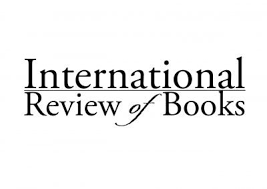May 27, 2025 | Interviews, Non Fiction, Self Help
Today, we’re talking with Kristine Georgia about her book, Healing My Anger
Tell us something unexpected about yourself!
I left an emotionally abusive relationship five years ago and I have been researching, healing and growing and learning so many wonderful paths to happiness.
Why do you write?
I found some healing methods that work really well for me. They are so unusual, that I have a great motivation to share them with the world. The ability to heal alone without needing medicine, therapy or support has radically changed my life and I hope it will change yours also.
What makes your book unique?
Finally, there is a book which addresses the root cause of anger – and promises complete healing. Healing My Anger is a deeply personal and emotionally honest exploration of what lies beneath our anger. Rather than offering surface-level techniques for managing frustration, the book gently reveals that anger is often a mask for something much more tender – grief that has never been fully felt.
With great compassion, it outlines a process that honors emotions rather than suppressing them. Readers are guided through the emotional layers – starting with anger, then moving into fear, and finally reaching grief. At the heart of it all is a belief that healing is possible when we allow ourselves to feel what we’ve spent years avoiding.
It suggests that grief is a doorway to freedom. By stepping through it, we can uncover a more authentic self, one no longer ruled by past wounds, but grounded in peace, clarity and truth.
Where did you get the inspiration for your current book?
When I faced an angry husband. When I felt alone in the world. I knew there were answers and I am so grateful that healing is available to all of us.
What do you enjoy the most about your genre?
I love being happy. I love the process of learning and changing to be a better human with the skills to make the world a better place.
How would you describe your writing process?
Sometimes, I seek quiet thoughtful moments to envision the story, then I just sit down and type.
What do you think authors have to gain from participating in social media?
Targeting people who may be seeking certain types of information or seeking certain groups can get together easily and help each other learn and grow.
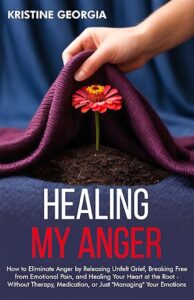 What advice would you have for other writers?
What advice would you have for other writers?
Find something that inspires you and write.
How do you select your books’ titles and covers?
Some reviews have helped me select book covers. They have distilled the most meaningful part of the book into a phrase that can be captured by an image.
What’s your next step?
I intend to keep writing to assist people find answers to many different issues in their life.
How do you react to seeing a new review for your book?
I love when people describe my book as eye-opening, life-changing and helpful. I just hope that their life will become better for reading it.
FIND KRISTINE’S BOOK ON AMAZON
May 15, 2025 | Interviews, Business, Memoir, Non Fiction
Today, we’re talking with Brandon Cox about his book, Hustle Reimagined
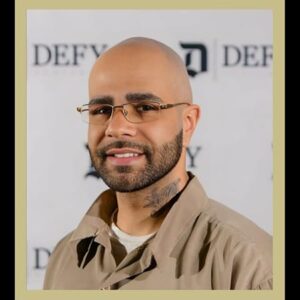 Tell us something unexpected about yourself!
Tell us something unexpected about yourself!
I’ve been incarcerated longer than TikTok, the iPhone, and Instagram have existed — and yet I’m more connected to today’s hustle than most.
Why do you write?
I write because I’m building something that lasts. My children, my community, even strangers I may never meet — they deserve to know that success doesn’t require perfection. Writing allows me to leave behind more than fabric and fashion — it’s how I leave behind legacy, lessons, and light.
Where did you get the inspiration for your current book?
The inspiration for Hustle Reimagined came straight from my reality — 18 years incarcerated, stripped of freedom, but never of vision. I realized I had two choices: let the time break me, or let it build me. So I used that time to learn, to grow, and to turn my pain into purpose. This book is the blueprint I wish someone had given me at the beginning. It’s not just a story — it’s a strategy.
What do you enjoy the most about your genre?
What I enjoy most is the impact. This genre isn’t just about storytelling — it’s about soul-shifting. Knowing that my words might reach someone who’s on the edge of giving up, and actually pull them back from that — that’s powerful. That’s why I love it.
How would you describe your writing process?
Writing for me is like hustling — it’s gritty, it’s daily, and it’s all about momentum. I jot down ideas during lockdown, rework chapters during rec, and edit through noise and chaos. But that’s the beauty of it. My process proves that even in restriction, you can create something limitless.
What do you think authors have to gain from participating in social media?
Everything. Social media is the modern-day megaphone. Authors no longer have to wait for a publisher or a PR team to tell their story — we are the media now. Whether you’re dropping gems from your book, connecting with readers, or sharing the behind-the-scenes hustle, social media lets you build a real tribe around your words. For me, it’s not about just selling a book — it’s about building a movement. One post, one story, one reel at a time.
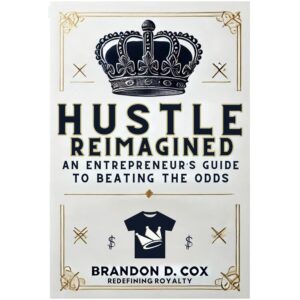 What advice would you have for other writers?
What advice would you have for other writers?
Stop waiting for the perfect time — it doesn’t exist. I wrote Hustle Reimagined from a prison cell with no laptop, no comfort, and no silence. But I had something more powerful: a story worth telling. If you’ve got a message, write it. If you’ve got a purpose, push it. Don’t let fear, doubt, or your circumstances stop you — because somebody out there needs your words.
How do you select your books’ titles and covers?
For me, the title has to hit like a punchline — it needs to tell you what you’re getting and make you feel something. Hustle Reimagined came from flipping the script on what hustle usually looks like. People expect grind, struggle, maybe even street talk — but I wanted to show them the evolution of hustle. The mindset. The transformation. That title is my mission in two words.”
“As for the cover, it has to represent the brand and the journey. I think about what will stand out on a shelf or in a scroll, but also what will feel timeless. I want the cover to match the energy of the content inside — clean, bold, and unapologetically real. Every design choice is intentional. I treat my book cover like I do my clothing designs: it has to speak before I say a word.
What’s your next step?
My next step is to build on the momentum of Hustle Reimagined and take the message even further. I’m already working on my second book, which dives into how people can use AI — like ChatGPT — to overcome limitations, start businesses, and create opportunities no matter where they are in life. At the same time, I’m continuing to grow my streetwear brand, Crookd Crown Clothier, and give back to communities and kids who’ve lost a parent to the system.”
“This isn’t just about books or clothes — it’s about legacy. It’s about proving that even after 18 years of incarceration, I can still impact the world in a positive way. So the next step is to keep building, keep inspiring, and keep redefining what royalty looks like — one project at a time.
How do you react to seeing a new review for your book?
Honestly, it’s one of the most gratifying feelings I’ve ever experienced. Knowing that Hustle Reimagined is actually reaching people and inspiring them — that’s everything to me. Each new review feels like a win, not just for me, but for everyone who’s ever felt stuck, silenced, or overlooked. I wrote this book hoping it would light a fire in someone, and seeing that it’s doing just that? It’s humbling. It reminds me that even from where I am, I can still make a difference.
FIND BRANDON’S BOOK ON AMAZON
Mar 29, 2025 | Interviews, Non Fiction
Today, we’re talking with Phoenix J. Waldren about his book, Parenting Superkids with ADHD
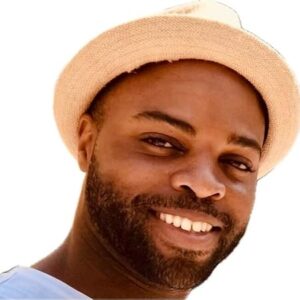 Tell us something unexpected about yourself!
Tell us something unexpected about yourself!
Something unexpected about me is that, despite being a self-help and motivational author, I sometimes struggle with staying motivated myself. Like anyone else, I have moments of self-doubt and distraction, especially when juggling multiple projects. What keeps me grounded is the very advice I share with others, I lean on routines, small wins, and a strong sense of purpose to keep moving forward. It’s a humbling reminder that growth is a continuous process, even for those of us who write about it!
Why do you write?
I write self-help and motivational books because I have a deep desire to inspire and empower others, drawing from my personal experiences and challenges. My work reflects a passion for helping people overcome obstacles, discover their inner strength, and achieve their potential. Whether addressing ADHD, emotional resilience, or professional success, I aim to provide relatable, actionable strategies to transform lives. It’s not just about sharing knowledge but about creating meaningful connections and sparking positive change in others’ journeys.
Where did you get the inspiration for your current book?
I got the inspiration for my current book from a combination of personal experiences, observations of challenges people face, and the desire to provide actionable solutions. I often draw from my own journey whether it’s overcoming obstacles, embracing personal growth, or learning from failures—and pair that with the insights I’ve gained through research, conversations, and real-life examples. My goal is always to address a need or provide clarity in areas where people are seeking guidance, which motivates me to turn those ideas into practical, impactful content.
What do you enjoy the most about your genre?
What I enjoy the most about my genre is the opportunity to make a real, positive impact on people’s lives. Writing self-help and motivational books allows me to connect with readers on a deeply personal level, offering them tools, encouragement, and perspectives that can help them overcome challenges and achieve their goals. I love turning complex ideas into relatable, actionable strategies and hearing how my words resonate with others. It’s incredibly fulfilling to know that my work can inspire hope, growth, and transformation in someone’s journey.
How would you describe your writing process?
I would describe my writing process as structured yet flexible, driven by bursts of creativity and guided by a clear vision. I start by brainstorming ideas and mapping out a framework to organize my thoughts. Research plays a key role, as I strive to back my insights with evidence and relatable examples. Once I have an outline, I dive into drafting, focusing on capturing the essence of my message while keeping the tone conversational and engaging.
I often revisit sections, refining my work to ensure it flows naturally and maintains a balance of practicality and inspiration. Writing for me involves moments of deep focus but also periods where I step away to reflect and let ideas percolate. It’s a mix of discipline, creativity, and a commitment to delivering value to my readers.
What do you think authors have to gain from participating in social media?
Authors have much to gain from participating in social media, as it’s a powerful platform for building connections, growing an audience, and directly engaging with readers. It allows authors to build their personal brand by sharing their voice, personality, and insights, helping readers connect with them on a deeper level. Social media increases visibility, attracting new readers who might not have discovered their books otherwise. It also provides a unique opportunity to engage directly with fans, fostering a loyal and supportive community. Beyond promotion, authors can share updates, teasers, or behind-the-scenes looks at their writing process to spark excitement for their releases. Social media facilitates networking among writers, publishers, and industry professionals, thereby creating opportunities for collaborations and learning. By engaging with followers, authors can gather valuable feedback and inspiration for future projects, making social media a dynamic tool for staying relevant and connected in today’s digital world.

Version 1.0.0
What advice would you have for other writers?
My advice for other writers is to embrace the journey, stay authentic, and keep pushing forward, no matter the challenges. Write what truly resonates with you and trust that your unique perspective will find its audience. Don’t get bogged down by perfection just start writing and refine later. Consistency is key, so make time to write regularly, even if it’s just a little each day.
Surround yourself with a supportive community of fellow writers and readers who can provide encouragement and constructive feedback. Be open to learning and evolving; read widely; study your craft; and don’t shy away from constructive criticism. Most importantly, believe in your voice and your message. Writing is as much about personal growth as it is about creating something meaningful for others, so enjoy the process and trust the impact your work can have.
How do you select your books’ titles and covers?
I select my books’ titles and covers through a blend of creativity, strategy, and audience focus. For the title, I aim for something that captures the essence of the book while being engaging, memorable, and clear about the book’s purpose. I often brainstorm multiple options, experimenting with phrasing that is both intriguing and resonates with my target audience. I also consider keywords and phrases that will make the title appealing and easy to find online.
When it comes to covers, I think about the emotions and themes I want the visuals to convey. I collaborate with designers or use feedback to ensure the cover is eye-catching and professional, aligning with the genre and appealing to readers at first glance. The goal is to create a cohesive package where the title and cover work together to draw readers in and instantly communicate the value of the book.
What’s your next step?
My next step is to focus on promoting my current books while continuing to develop new ideas that resonate with my audience. I plan to refine my marketing strategies, explore tools like Amazon ad automation, and engage more actively with readers on social media to build a stronger community around my work. I’m also aiming to finalize and launch my next book projects, such as Legacy by Design (Teen and Young Adult Rental Investment), ensuring its impactful and well-received.
Additionally, I’m looking into diversifying my offerings, whether through creating complementary content like workbooks, webinars, or even branching into new genres like thrillers or drawing books for kids. On a personal level, I’ll keep improving my writing craft, seeking out feedback, and learning new techniques to make my books even better. Every step is about building momentum and delivering value to my readers.
What book do you wish you’d written?
I love my niche of self-help, and it fulfills me to inspire and empower others, but I wish I had a mind for thriller books. Writing something like Invisible, a dark and gripping tale about a serial killer who uses candles as both a symbol and a weapon, would be an incredible challenge. The psychological intrigue, chilling narrative, and exploration of human nature in thrillers have always fascinated me, and I admire the ability to craft such intense and unforgettable stories.
How do you react to seeing a new review for your book?
Seeing a new review for my book is always a mix of excitement and curiosity. If it’s a positive review, it fills me with gratitude and a sense of accomplishment, knowing that my words resonated with someone and made a difference in their life. If the feedback is constructive, I view it as an opportunity to learn and grow as an author. Every review, whether glowing or critical, reminds me that my work is reaching readers and sparking a reaction, which is ultimately why I write. It’s a humbling and motivating experience that keeps me striving to create content that connects and inspires.
FIND PHOENIX’S BOOK ON AMAZON
Dec 23, 2024 | Interviews, Non Fiction, Spiritual
Today, we’re talking with Walter Broach about his book, Spiritual Energy and You
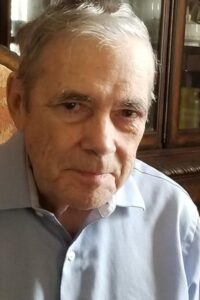 Tell us something unexpected about yourself!
Tell us something unexpected about yourself!
I’m 86 years old
Why do you write?
It is fun. I like to research stuff and save it so it is easy for me to flesh it out into books.
Where did you get the inspiration for your current book?
I will drop dead soon because I’m old. I’m curious about what happens after death. My next book will be about the material of which we are composed, where it came from, how we got it and what happens to it after death.
What do you enjoy the most about your genre?
I believe I enjoy doing research that interests me the most. I will read anything that comes into my view.
How would you describe your writing process?
I go to my desk and sit down. Then I started messing with my computer by playing a game of Solitaire. Then, I start researching or writing. Google has made the research easy. We don’t have to go to the library any more.
What do you think authors have to gain from participating in social media?
It is good for their brain because they get to see lots of viewpoints.
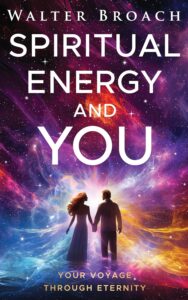 What advice would you have for other writers?
What advice would you have for other writers?
Write and read. If you want to write, do it. The more you do it, the better you get at it.
How do you select your books’ titles and covers?
I do a short title that is descriptive of the genre of the book and then a longer subtitle telling what the book is about, Then I have someone else do the cover because I want the book to look good.
What’s your next step?
To write at least one more book. I’m excited about it. It will be about life before we were born and after we die.
What book do you wish you’d written?
No book not mine. I love reading other peoples stuff, I learn from them.
How do you react to seeing a new review for your book?
I love to read them.
FIND WALTER’S BOOK ON AMAZON
Dec 23, 2024 | Interviews, Non Fiction
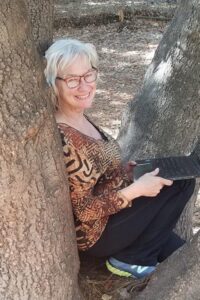 Tell us something unexpected about yourself!
Tell us something unexpected about yourself!
I have an unnatural love for compost. Nothing makes me happier than to see my discards become something fertile and teeming with life.
Why do you write?
Writing is my outlet for channeling the voices that screech in my ear when I’m trying to sleep. It’s my sanity saver, giving me an outlet for all the insights, frustrations, and dark humor that I’d otherwise be shrieking into the void.
Where did you get the inspiration for your current book?
This book is a series of essays and stories that reflect my need to process the upsetting truths about the poor condition of Earth’s life support systems. Not just climate change, but our fresh water, air, soils, oceans, biodiversity, and more are in bad shape. Why aren’t we doing more to save ourselves? Disinformation campaigns play a big part. I also believe that those of us who want to do more wonder if there’s anything we can do that will make a difference. So, for every problem I highlight, I decided to showcase a group that’s doing something about it, to help inspire us all to do all that we can to save our very life support systems.
What do you enjoy the most about your genre?
I’m not sure I have a genre.
How would you describe your writing process?
Both chaotic and systematic. I sit down to write every morning when my brain is still fresh, come what may. The routine helps me be productive. But the big ideas tend to come while I’m walking, meditating or sleeping—not, in other words, when I sit down at my desk. So, I make notes on my apps or shout them at Alexa in the night, and these become fodder for the next day’s writing.
What do you think authors have to gain from participating in social media?
I enjoy following authors who share their trials and tribulations candidly. Not the ones who make it all seem simple but the ones who make me feel like I’m part of a messy, creative tribe. I’m still searching for the best means of connecting with interested readers.
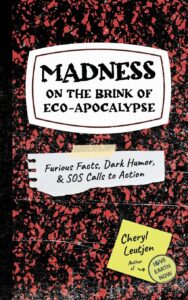 What advice would you have for other writers?
What advice would you have for other writers?
Keep at it. I could not be writing what I am today if not for countless hours spent producing drivel. I also recommend taking a class or joining a writing group to get some new insights and perspectives. I don’t mean an MFA program, unless that’s meaningful to you—I don’t have one. I have, however, gleaned a lot from meeting up with a group of writers, as well as taking a few six-week online classes.
How do you select your books’ titles and covers?
The book title is the very last thing that comes to me. The title Madness on the Brink of Eco-Apocalypse arrived after the entire book had been edited and proofread. My writing is so chaotic, bouncing from one idea to another, that I need that bit of distance after the writing is done to sit back and ponder what the whole thing was all about. I’m fortunate that the cover designers came up with just the right design for both of my books because I think in words, not pictures. But I know what I like when I see it, and I’m thrilled with how the covers turned out.
What’s your next step?
This book came fast and furious, given the urgency of the topics. I’m looking forward to writing some lazy blog posts and enjoying the holidays.
FIND CHERYL’S BOOK ON AMAZON
Jul 3, 2024 | Audio Book, Editors' Blog, Interviews, Non Fiction
Today, we’re talking with Evan Soundwell about his book,
Tell us something unexpected about yourself!
I am a holistic sonic therapist, not a professional writer. My expertise lies in the field of sound. With a robust academic background as a music teacher, performer, conductor, composer, and musicologist, I represent the new holistic sonic modality “Sonic Consciousness.” While my primary language is music, I have ventured into writing to communicate my discoveries in sound therapy.
Why do you write?
In today’s segmented world of knowledge, sound healing remains a field that ordinary people have limited awareness of and often rely on so-called experts. I aim to bridge that gap, educate people, and help them form their own judgments to avoid misconceptions and fraudulent claims in the realm of sound healing. Writing allows me to share my discoveries and insights, documenting the profound impact that sound and frequency can have on well-being. It provides a comprehensive answer to the general question of whether sound can heal.
Where did you get the inspiration for your current book?
The inspiration for “Sonic Consciousness” came from the gaps I observed in the existing literature on sound therapy. Many materials I encountered lacked either musical depth or scientific precision. This motivated me to share my comprehensive understanding in a structured and accessible way, addressing important questions that have never been fully answered, such as the true nature and clear definition of harmony, among many others.
What do you enjoy the most about your genre?
I enjoy the holistic health genre because it allows for a comprehensive approach to well-being, integrating physical, emotional, and spiritual aspects. It’s rewarding to see how alternative therapies can complement conventional medicine and provide relief to those in need.
How would you describe your writing process?
I discovered that writing and composing have a lot in common; they are just different languages. While everyone possesses the ability to understand the language of music naturally, writing is another skill I have developed to share my insights. My process is methodical and intuitive, starting with a broad outline and delving into detailed research and personal anecdotes to make the content relatable and engaging. This audiobook is designed with numerous sound examples to allow listeners to experience firsthand every claim I make.
What do you think authors have to gain from participating in social media?
Social media offers authors a platform to connect directly with their audience, receive immediate feedback, and build a community around their work. It is a valuable modern tool that makes it easier and more cost-effective for authors to gain recognition and engage with readers.
What advice would you have for other writers?
With my limited experience, I can say: Stay true to your voice and message. Be wary of relying too much on editors; your authentic voice is what matters most.
 How do you select your books’ titles and covers?
How do you select your books’ titles and covers?
I choose titles that encapsulate the essence of the book. For “Sonic Consciousness,” the title reflects the book’s focus on music as a language for our DNA. The cover is designed to visually represent its themes and invite readers to delve deeper into the book.
What’s your next step?
My next step is to deliver on my promises to readers by creating sonic therapy sessions that align with the concepts presented in the book. Additionally, I will soon introduce the world’s first sound homeopathy modality, which will be announced on my Facebook page. So stay tuned.
What book do you wish you’d written?
I wish I had written “The Tao of Sound” by Fabien Maman. It’s a comprehensive exploration of how sound affects the body and mind, aligning with my interests in holistic health and the transformative power of music and frequency.
How do you react to seeing a new review for your book?
I haven’t yet received any public reviews, but my colleagues among musicians have shown interest, as many parts of the book have been revelations even for them. This makes me proud to present concepts not previously discovered. My colleagues in holistic health, even without prior knowledge, find it very valuable and educational. The feedback I have received gives me confidence and satisfaction.
FIND EVAN’S BOOK ON AMAZON
 What advice would you have for other writers?
What advice would you have for other writers?
 Tell us something unexpected about yourself!
Tell us something unexpected about yourself!
 Tell us something unexpected about yourself!
Tell us something unexpected about yourself!
 Tell us something unexpected about yourself!
Tell us something unexpected about yourself!
 Tell us something unexpected about yourself!
Tell us something unexpected about yourself!
 How do you select your books’ titles and covers?
How do you select your books’ titles and covers?